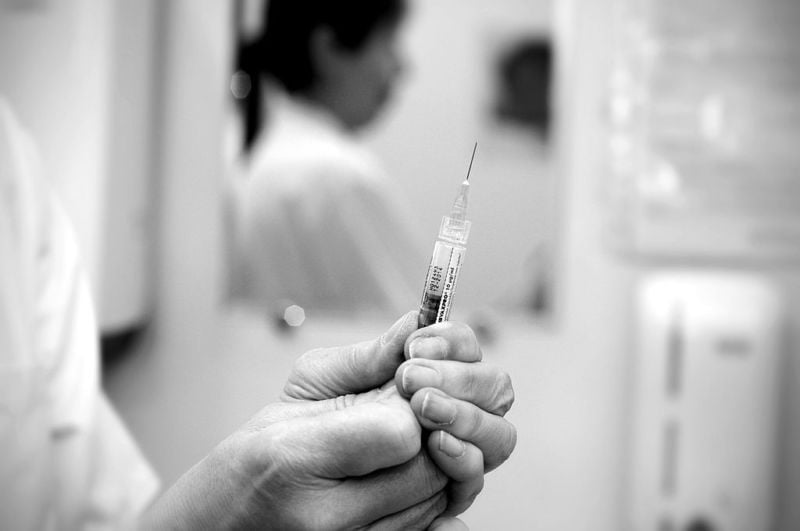When the FDA took key action in the fight against COVID-19, by issuing an emergency use authorization for the Pfizer and Moderna vaccines in December, US officials were expecting to vaccinate 20 million Americans by year’s end. Curiously, only 2 million were actually inoculated.
Who among us didn’t hear about the four severe allergic reactions to the vaccine while in clinical trails, or the other 3 who were presented with Bell’s Palsy? In fact, about 16 percent of those who took the shot in clinical trials experienced a severe adverse reaction: a classification the FDA uses to refer to side effects that require medical attention.
Moderna noted in its briefing document that “we’re still trying to find out how long the vaccine’s protection lasts,” and Pfizer admits “we don’t actually know how well it prevents transmission, or anything at all really about its long-term impact.” Both companies say they’ll monitor its trial pool for two years and will keep an eye on the first guinea pigs who received the vaccine.Best in Show
Though the US government has ordered 200 million vaccines to be delivered to the 50 states by March, the roll out has been slow, misunderstood and mismanaged. The CDC advised the states to prioritize the elderly for the vaccines last week, but Governors like Florida’s Ron DeSantis admits “the COVID-19 vaccine supply is still limited. We don’t have enough vaccine currently on hand for all 4 million-plus senior citizens in the state of Florida,” leaving the vast majority sleeping in lawn chairs at vaccination sites for the ‘first come first serve’ approach.
The British government took a novel approach. “Our priority will be to give the first vaccine dose to as many people we can,” Prime Minster Boris Johnson said, “rather than giving fewer people the required two doses.” Pfizer warned this weekend, “There is simply no data to show that a single dose of its vaccine will give people protection after 21 days.”
Back in America, an increasingly vocal Medical Freedom Movement is gearing up to fight any attempts to make the shots mandatory. Vaccine opponents have aligned with religious and civil liberties groups to protest stay-at-home orders, business closures, and mask mandates in recent months. They argue that the policies, designed to stop the spread of a deadly virus, violate their constitutional rights. “Were hoping to procure protection from the Covid-19 vaccine specifically,” said Stephanie Stock, president of the Ohio Advocates for Medical Freedom, which opposes any type of mandatory vaccination.
Lawsuits aimed at blocking employer vaccine mandates usually fail, as long as companies comply with state or federal laws that allow exemptions for objectors, usually on a religious basis. But there is no precedent for mandating a vaccine available under an emergency-use authorization — as Covid-19 vaccines will be, initially — rather than full approval from the Food and Drug Administration. “The vaccines are really a gift to the American people,” says former President Jimmy Carter, who at 96 received the vaccine this weekend. “They should be redeemed as such.”
Sunday Morning / January 3, 2021
~Two Million Reasons to Believe
Exactly 3,725 Americans died of the coronavirus last Tuesday, and another 3,740 on Wednesday, and so on, making the very last week of 2020 the deadliest in American history. Sadly, my bother-in-law was among them. Our eldest brother was 61 years old, had a pre-existing heart condition, and was considered by definition At Risk. He joined the 350,000 Americans who died of virus-related causes in the United States in 2020, just as the CDC now confirms a new and seemingly faster-spreading COVID-19 variant is spreading throughout the country.
Though US officials had hoped to vaccinate 20 million people by New Years Eve, a scant 2 million actually showed up or managed to get the shot. Confusion over the rollout and antivaxxer propaganda each played a part but then there were the others. These are they who cut to the front of the line ahead of the elderly, infirm and deserving. These were people like me.
A chance connection with an essential worker somehow put me front and center for the vaccine. I rolled up to the Union County Health Department at high noon on day one without so much as a pre-existing condition or even a cough to show for it. I felt smug in my new Lululemon Fast and Free Vest when I sauntered up for the shot. “Which arm would you like it in,” the nurse inquired, referring to a dull pain that can follow for days after the inoculation. My only real concern was if or whether it would thwart my calisthenics class later that afternoon?
In the wee hours of the following morning, my brother-in-law was gasping for breath in the Intensive Care Unit at Morton Hospital. Though Covid had come and gone, it left a strange calling card — deep within the sinews — that manifested several weeks after his recovery. A pre-existing heart condition had been under control and fully manageable for nearly 40 years until Covid came along. Neither married nor with children of his own, his role in our larger extended family was possibly all the more poignant. The master carpenter had spent a lifetime remodeling our homes, all but raising some of our children, as the conciliator to many family squabbles, and finally as a lifelong companion to our 93-year-old father who himself now clings to life from Covid. It can fairly be said that I cheated a system for which he — and nearly 2 million others around the world — so dearly paid and died.
The only real mistakes we make are the ones we don’t learn from, and I’ve decided not to idly remember those who passed but to take their yoke upon my own back. The steel in our souls is forged by compassion; and by the small and seemingly selfless acts of service that were the cornerstone of the Record Family. In the absence of this firstborn son, I leave you with our newest elder brothers’ words of wisdom, and the family’s warm wishes for the forthcoming year…
Wishing all the best life can bring. Success to all in everything they do. Merry Christmas to all and happy new year, too. Remember, it’s not the destination but the journey. Enjoy every day of the adventure.
In Memoriam
Norman Ernest Record Jr.
1959 - 2020








